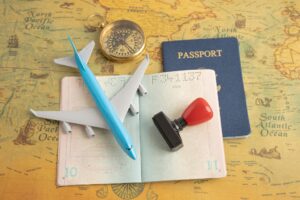Canada is well-known for its exceptional education system and its open, accommodating atmosphere for students from around the world. Each year, thousands of students from around the world aspire to study in Canada, and obtaining a Canadian student visa is a critical step in realizing this dream. One of the key factors to consider when applying for a Canada student visa is the required minimum bank balance, as well as the processing time for the visa application.
Required Minimum Bank Balance:
While Canada is known for its inclusive and diverse society, it is also essential for international students to demonstrate their financial ability to support themselves during their stay. The specific amount required for a Canada student visa may vary depending on the institution, location, and program of study, but there are some general guidelines to keep in mind.
As of my last knowledge update in September 2021, the Canadian government typically recommends that international students have at least $10,000 to $15,000 CAD per year for living expenses. However, it’s crucial to check the most recent requirements on the official website of the Government of Canada or the Canadian Embassy/Consulate in your home country, as these requirements can change over time. Additionally, the financial requirements may vary if you plan to study in the province of Quebec.
Here’s a breakdown of the main expenses you should consider when calculating the required minimum bank balance for your Canada student visa application:
Tuition Fees: This is the cost of your academic program and varies depending on the university or college and the specific program you choose. The cost of tuition can vary significantly, spanning from a few thousand to tens of thousands of dollars annually.
Living costs: This encompasses housing, food, transportation, and various everyday expenditures. The estimated cost of living in Canada can vary significantly depending on the city or province where you plan to study. For instance, cities like Toronto and Vancouver tend to be more expensive than smaller cities or towns.
Health Insurance: International students in Canada are usually required to have health insurance. Some provinces offer government-sponsored health coverage, while others require you to purchase private health insurance.
Books and Supplies: Don’t forget to budget for textbooks, school supplies, and other course-related materials.
Miscellaneous Expenses: This category covers unforeseen expenses, entertainment, and personal items. It’s a good idea to have a cushion for unexpected costs.
To meet these financial requirements, you may need to provide proof of funds in the form of bank statements, scholarship letters, or a combination of financial documents. Make sure to consult the official guidelines provided by the Canadian government to ensure you meet the specific requirements for your situation.
Processing Time:
The processing time for a Canada student visa application can vary depending on several factors, including your home country, the time of year you apply, and the type of application you submit. Below is a broad summary of what you can anticipate:
Visa Application Centre (VAC) Processing: After preparing your application and supporting documents, you’ll need to submit your application to the nearest Visa Application Centre (VAC) in your home country. The VAC will review your application to ensure it is complete and forward it to the appropriate Canadian visa office.
Visa Office Processing: Once your application reaches the Canadian visa office, it will be processed based on the information and documents you’ve provided. The processing time at this stage can vary but generally falls within a few weeks to a few months.
Biometrics Appointment: If required, you will need to attend a biometrics appointment at a local Application Support Center (ASC) or Application Support Center-Rural (ASC-R) in your country. Biometrics include fingerprinting and photographing.
Interview: In some cases, you may be asked to attend an interview at the Canadian visa office or consulate in your home country. This is usually done to assess your genuineness as a student and your intent to return to your home country after your studies.
Medical Examination: Depending on your home country and the duration of your studies in Canada, you may need to undergo a medical examination to ensure you meet health requirements.
Final Decision: After all necessary processing steps are completed, you will receive a decision on your visa application. Upon approval, you will receive a study permit.
It’s important to apply for your Canada student visa well in advance of your intended start date for studies. Processing times can vary widely, so it’s advisable to check the current processing times for your specific country on the official website of the Canadian government or the Canadian Embassy/Consulate.
In conclusion, pursuing a Canada student visa is a significant step for international students seeking to study in one of the world’s top educational destinations. Understanding the required minimum bank balance and the processing time is crucial for a smooth application process. Be sure to check the most up-to-date information on the official Canadian government websites or consult with a qualified immigration consultant for personalized guidance based on your circumstances.




